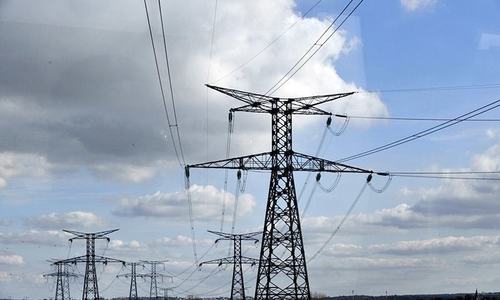ISLAMABAD: The government on Friday asked the gas companies to maintain uninterrupted supply of domestic gas and imported Liquefied Natural Gas (LNG) to fertiliser plants until January next year to ensure enough production for the ongoing Rabi crops.
While presiding over a meeting on the fertiliser situation, Adviser to the Prime Minister on Finance and Revenue Shaukat Tarin directed the stakeholders to evolve consensus on matters relating to sales tax refunds and Gas Infrastructure Development Cess (GIDC) on a fast-track basis.
An official said the government was in a delicate situation because of very high international fertiliser prices, involvement of foreign exchange and demands of the fertiliser industry ahead of the Rabi fertiliser offtake season. It had already decided to ensure maximum gas supplies to local fertiliser plant including uninterrupted supplies to two Punjab-based plants but also had to recover over Rs130bn GIDC from fertiliser plants, pending for a couple of years.
Expensive urea imports to increase input costs, impact crop output
The fertiliser plants on the other hand want payment of these GIDC payables staggered over a decade after adjusting for their GST refund claims of more than Rs50bn against the government. The challenge for the government is that international urea prices have gone beyond Rs7,000 per bag compared to local rate of about Rs1,750-1,800 per 50-kg bag.
As a result, the government could hardly afford burning limited foreign exchange reserves on import of urea when subsidised gas supplies at a much lower rate could produce cheaper fertiliser at home.
An official said the meeting reviewed the cost benefit analysis of an inter-ministerial committee which reported that besides the foreign exchange loss on urea import, the expensive imports would also increase inputs costs and have an impact on crop output.
Ultimately, the commodity prices in the country would increase. Therefore, it would be much better to ensure maximum gas supplies to fertiliser sector even if it was at the cost of lower gas supplies to domestic consumers.
The meeting noted that based on carryover stocks, operationalisation of all fertiliser plants within next 15 days through optimum gas supplies, the country would have sufficient stocks by end-December to meeting local demand. The meeting was informed that supply of gas to Sui Northern Gas Pipelines Ltd (SNGPL) based urea plants — Fatima and Agritech — will assure production of additional 300,000 tonnes till January 2022. The Ministry of Energy said it was firmly committed to ensure maximum gas supply to all fertiliser units including Pak Arab and Fauji Fertilizer Bin Qasim Limited.
On the occasion, Secretary Industries reported that a tender for import of 100,000 tonne of urea had also been advertised.
Earlier this month, the Economic Coordination Committee (ECC) had approved supply of 58 million cubic feet per day (mmcfd) gas to Pak-Arab and 63mmcfd to Fauji Fertilizer Bin Qasim to ensure that estimated demand for urea fertiliser was met domestically. The ECC had already approved 70mmcfd of RLNG to Fatima and Agritech on the SNGPL network.
Published in Dawn, October 30th, 2021















































Dear visitor, the comments section is undergoing an overhaul and will return soon.